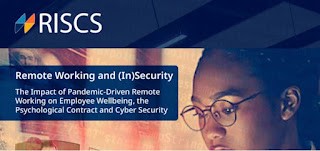Inter-CDT Summer Conference.
On June 29th and 30th, Royal Holloway’s CDT in Cyber Security for the Everyday was delighted to host colleagues from the cyber security CDTs based in Bath/Bristol and UCL for the annual Inter-CDT Summer Conference. This conference series is student-led and student-organised, with this year’s conference theme being Making Connections.
Making Connections is an important aspect of the PhD journey for each CDT student, since researchers are not only expected to make connections with students from their own cohort and other cohorts, but also make connections between the many different facets of cyber security that have relevance to their specific research projects. This typically also involves making connections with individuals from other organisations, including other CDTs, which is precisely what the Inter-CDT Summer School facilitates.
The conference was excellent planned, with a real mix of activities and formats. Day one began with an ice-breaking activity which immediately enabled connections to be established between participants. We then had a series of short PhD lightning talks, where participants practiced the useful skill of conveying their projects, or related ideas, concisely and clearly in less than ten minutes. Guest presentations on the first day were delivered by Natasha Langford from the Department of Health and Social Care on the challenges of providing cyber security at scale within the somewhat disconnected NHS, Andreas Haggman (the master of Making Connections) from the Department of Science, Innovation and Technology on how connections had facilitated his career, and Tim Stevens from Kings College on forging connections between different cyber security social science research areas. The day closed with a fascinating series of reflections on life beyond PhD by a panel of recent PhD graduates. New connections were then made, and old connections rekindled, in the garden of Bar 163 in Egham.
The second day featured more lightning talks and a panel discussion on the challenges of collaborative research projects, which was really a series of case studies on how to covert connections into productive research engagement. In the afternoon the conference broke out into three separate rooms in order to allow researchers with common interests to explore issues in greater depth.
The two days went flying by, and a vote of thanks is due to Rebecca Hartley, Sophie Hawkes and Taylor Robinson for all the planning and organisation of a highly successful event.



Comments
Post a Comment